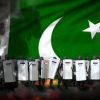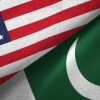The recent targeted killings in Balochistan mark yet another chilling reminder of the region’s deepening crisis. At least nine innocent passengers were brutally murdered on Thursday after being pulled off Punjab-bound buses in the Zhob-Loralai region. According to reports, the assailants checked identity documents before selecting their victims. The banned Balochistan Liberation Front has claimed responsibility for the massacre — a heinous act that underscores the dangerous escalation of separatist violence in the province.
Tragically, this is not an isolated event. In recent years, several similar attacks have targeted non-Baloch individuals, particularly those from Punjab, reinforcing a disturbing pattern of ethnic profiling and premeditated violence. The victims, mostly working-class men who had travelled to Balochistan in search of livelihood, were killed for no other reason than their ethnicity — a grotesque violation of every moral and legal norm.
These acts of terror not only tarnish the image of Balochistan but also deepen its isolation. Professionals such as teachers, doctors, engineers, and labourers are likely to avoid the province, worsening the already dire state of services and economic activity. Moreover, such violence fuels suspicion and resentment in other provinces, placing ordinary Baloch citizens at risk of discrimination and marginalisation elsewhere in the country.
At a national level, the military has linked such incidents to hostile foreign proxies, reaffirming its resolve during the recent corps commanders’ conference to dismantle these networks — whether they be TTP-linked or Baloch separatist outfits. These actors may differ in ideology and tactics, but the threat they pose to national unity and civilian life is grave and requires an unwavering response.
However, as history has repeatedly shown, brute force alone cannot extinguish insurgency. A purely militarised strategy, while necessary to contain immediate threats, cannot substitute for a long-term political solution. Militancy in Balochistan feeds off decades of legitimate grievances — enforced disappearances, lack of development, political alienation, and economic marginalisation. These are not abstract talking points; they are daily realities for many Baloch citizens, particularly in rural and impoverished districts.
It is imperative that the state address these root causes with sincerity and urgency. Counterterrorism efforts must be paired with meaningful dialogue. Constitutional Baloch nationalist parties must not only be engaged but also encouraged to denounce violence unequivocally. Their voices can play a crucial role in delegitimising extremist elements and building bridges between the centre and the periphery.
Equally essential is a transparent and inclusive development model. The people of Balochistan must see tangible improvements in their lives — in healthcare, education, employment, and infrastructure. Until these concerns are addressed, separatist narratives will continue to find traction, and foreign actors will exploit these vulnerabilities to destabilise the region further.
The gruesome murders this week are not just a security failure — they are a sobering indictment of the state’s unfinished work in Balochistan. If Pakistan is to truly secure peace and stability, it must move beyond reactionary measures and invest in a vision of justice, equity, and reconciliation. The bloodshed must end — not just with guns, but with governance.








